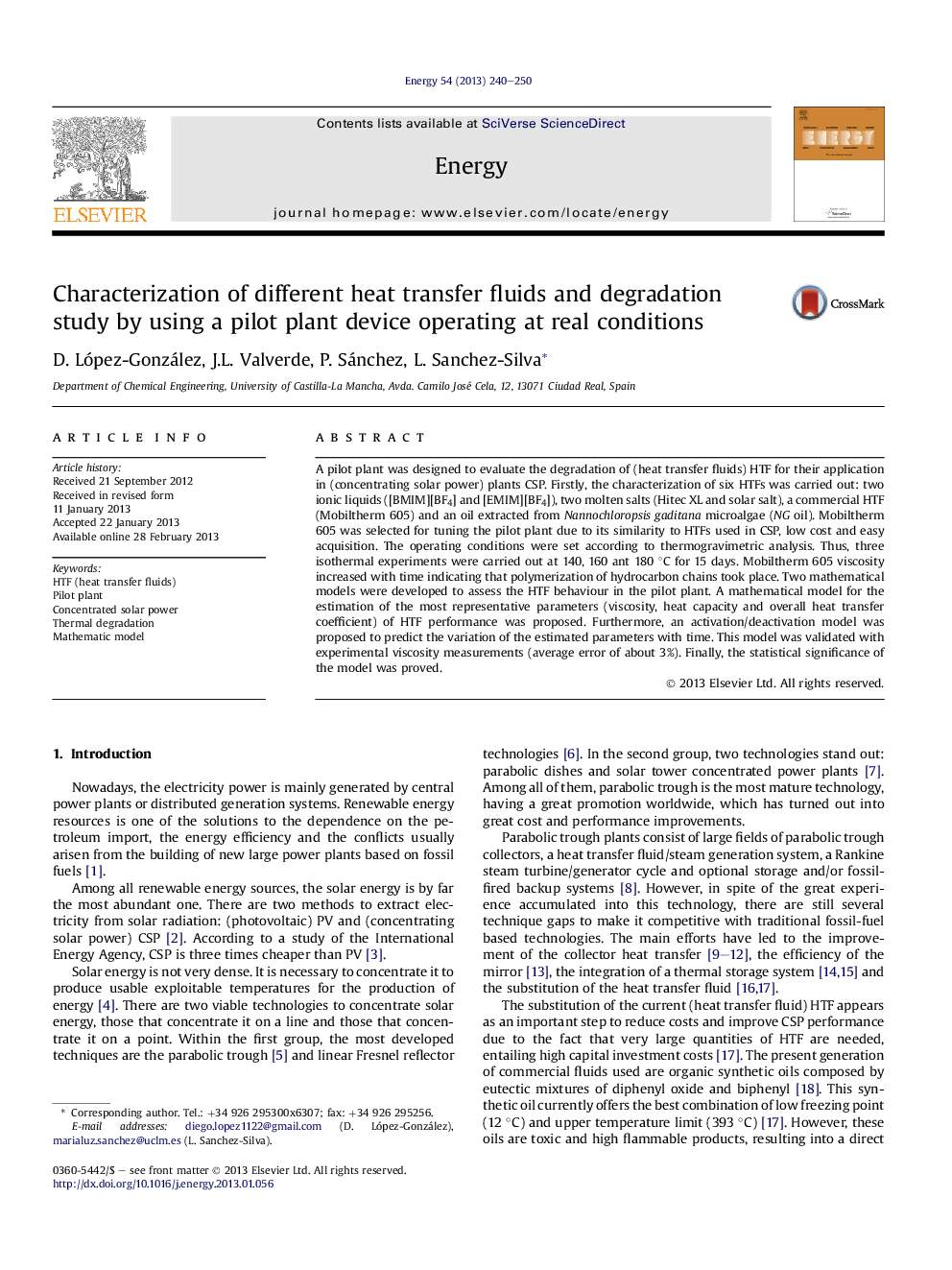| Article ID | Journal | Published Year | Pages | File Type |
|---|---|---|---|---|
| 1732803 | Energy | 2013 | 11 Pages |
A pilot plant was designed to evaluate the degradation of (heat transfer fluids) HTF for their application in (concentrating solar power) plants CSP. Firstly, the characterization of six HTFs was carried out: two ionic liquids ([BMIM][BF4] and [EMIM][BF4]), two molten salts (Hitec XL and solar salt), a commercial HTF (Mobiltherm 605) and an oil extracted from Nannochloropsis gaditana microalgae (NG oil). Mobiltherm 605 was selected for tuning the pilot plant due to its similarity to HTFs used in CSP, low cost and easy acquisition. The operating conditions were set according to thermogravimetric analysis. Thus, three isothermal experiments were carried out at 140, 160 ant 180 °C for 15 days. Mobiltherm 605 viscosity increased with time indicating that polymerization of hydrocarbon chains took place. Two mathematical models were developed to assess the HTF behaviour in the pilot plant. A mathematical model for the estimation of the most representative parameters (viscosity, heat capacity and overall heat transfer coefficient) of HTF performance was proposed. Furthermore, an activation/deactivation model was proposed to predict the variation of the estimated parameters with time. This model was validated with experimental viscosity measurements (average error of about 3%). Finally, the statistical significance of the model was proved.
► The characterization of different (heat transfer fluids) HTF was carried out. ► Pilot plant for testing HTFs was designed and tuned using Mobiltherm 605. ► The HTF behaviour in the pilot plant was predicted by two mathematic models. ► The mathematic models proposed were successfully validated. ► The statistical significance of the proposed models was verified.
